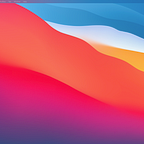Nootropics
2 min readApr 12, 2022
- LionsMane + cordyceps
- gingko and holy basil
- B6
- L-theanine and glutamine
- the amino acid tyrosine to improve alertness
- salt magnesium threonate
- citicoline and phosphatidylserine
- rhodiola and Bacopa
- B vitamin complex and alpha lipoic acid
- Cognizin, a version of choline, which is a compound derived from food, particularly eggs…
found in Qualia - https://lyma.life/supplement/
- https://mattroberts.co.uk/services/
-> intravenous glutathione infusion to treat her “brain fog” - Roberts recommends magnesium threonate for sleep (good sleep is essential for brain recovery and memory)
- Please use the sharing tools found via the share button at the top or side of articles. Copying articles to share with others is a breach of FT.com T&Cs and Copyright Policy. Email licensing@ft.com to buy additional rights. Subscribers may share up to 10 or 20 articles per month using the gift article service. More information can be found here.
https://www.ft.com/content/08078211-638b-4326-ac2e-92ae2cdf65c9 - the supplement NAD, which is essentially niacin (a vitamin B3 extract), or its more hardcore sister, NMN. NAD may increase human-growth hormone response and therefore the ability of the body’s cells to regenerate. “Watch how you take NMN, though,” he says, “as it needs to be attached to a fat molecule to be absorbable.” Like almost everyone else I spoke to, Roberts cites gut health — in the form of a diet rich in plants and fermented foods — as a key element in the quest to improve brain function and adaptability.
- included eating foods that are rich in omega-3s and/or supplementing with omega-3s to get 2–3g of the fatty acid EPA per day;
Danger!
- creatine — a supplement the fitness-obsessed use to bulk up, “but which is good fuel for the brain — at least 5g a day” -> but can cause hair loss!
